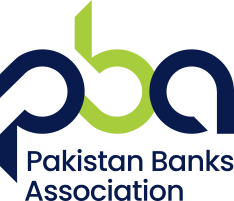
Pakistan Banks’ Association highlights effective role of banks as Executing Agents & Collaborating Partners
The Pakistan Banks’ Association (PBA) has highlighted the effective and integral role Pakistani banks play as Executing Agents and Collaborating Partners. According to Tawfiq Husain, CEO, Pakistan Banks’ Association, the State Bank of Pakistan (SBP) and the government had initiated various interventions to deal with COVID 19 Pandemic, rolled out the initiative of Roshan Digital Accounts, re-emphasized lending in priority sectors of low cost housing, agriculture finance and SME financing and successfully maintained the momentum that contributed to the growth of home remittances.
Expressing his views, he said, “One of the major interventions for COVID relief related to the provision of concessionary financing for setting up of new industrial units. The Temporary Economic Refinance Facility (TERF) provided financing by the banks at a fixed rate for 10 years’ tenor loan. Under this facility, the total amount of loans approved was Rs.435 billion, while the total loans disbursed were Rs.320 billion.”
“When COVID struck, a lot of businesses came under pressure during the lockdown period. The Rozgar Refinance Scheme of loans for payment of wages and salaries to workers helped the businesses. Under this scheme, the borrowers could not lay off their workers during the lockdown and 40% of the first loan losses of the banks were borne by government of Pakistan. The total loans disbursed by banks under the Rozgar scheme amounted to Rs.238 billion,” he added.
According to him, another initiative in this respect was the rescheduling/restructuring of finance facilities in which there was deferment of repayment of principal loan amount by one year while non-servicing of mark up or the deferment of principal exceeding one year could be rescheduled for longer period. There was no classification of these financing facilities by the banks and it was reported as regular for ECIB purposes. The total amount deferred and rescheduled/restructured by the banks was Rs.910 billion.
Elaborating further on the effective role played by the banks, he said, “In March/April 2020 during the peak of the lockdown, the banks, at the request of the State Bank of Pakistan, agreed to allow mark-up reset from April 1, 2020 for those mark-up resets which were otherwise due at later dates in 2020. The relief on resetting/repricing of mark-up was a one-time offer from the banks and was applicable to all borrowers in the targeted sectors which were considered most vulnerable in the then prevailing circumstances, i.e. SME, agriculture and consumer finance (self-employed individuals). Through this goodwill gesture, the banks gave up a meaningful amount of their locked in mark-up income.”
It is pertinent to mention that as part of the digital onboarding of overseas Pakistanis’ accounts, the SBP launched its landmark Roshan Digital Account initiative in collaboration with commercial banks in Pakistan. Tawfiq said, “Currently, 14 banks are offering their services to the overseas Pakistanis. As part of this major initiative, more than 400,000 accounts have been opened, through which over $4 billion of foreign currency inflow has come into Pakistan.”
Elaborating further on the positive contribution of the banks, he said that while the SBP and the government policy measures have principally contributed to the healthy and consistent growth in home remittances, the contributions of the banks and their role behind the great success of home remittances requires due recognition also.
According to him, there are two critical factors for the remittances to be routed through banks and not through hawala, he said. “One is the exchange rate and the other is the turnaround time (TAT) for the remittance transaction. As the hawala ensures same day payment from remitter to beneficiary, the banks, which traditionally used to take over a week (sometimes two) in processing payments, could not be competitive earlier on. However, the banks collectively took up this challenge and improved their internal processes along with improving the coordination amongst themselves.
“Furthermore, as enabling technology became available, banks invested in resources and now work on same day processing and payments. Some banks have even improved their TAT to instant payments. By maintaining these excellent standards, the banks have ensured that they remain competitive in the service delivery aspect. The general public is largely unaware of this important role and contribution of the banks in this vital area,” he added.
Another major area of collaboration of banks is in Priority Sector Lending. Included in this are loans provided for low cost housing schemes. The total loans approved amounted to Rs. 180 billion, while Rs. 66 billion have been disbursed to the borrowers.
Tawfiq Husain mentioned that the banks also offered agricultural financing where the target for the current fiscal year (2021-22) was set at Rs. 1.7 trillion, while loans worth Rs. 1.05 trillion have been disbursed till the end of April 2022.
“The banks also offer SME Financing to the borrowers. Under this category, the banks disbursed loans to SMEs amounting to Rs. 524 billion for year ended Dec. 31, 2021,” he concluded.